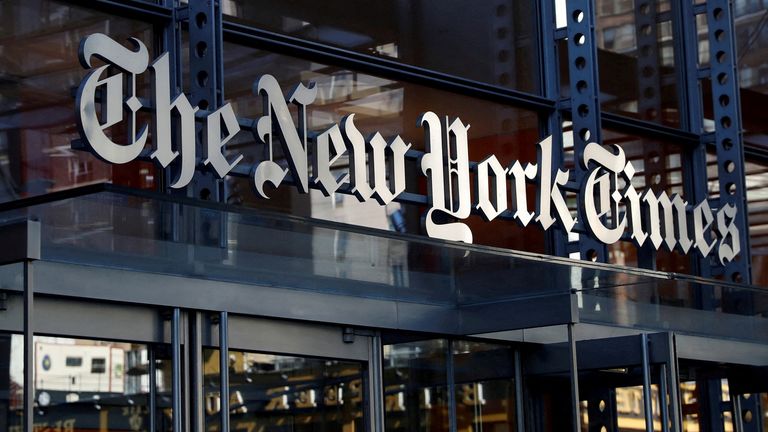The New York Times has become the first major news organisation to sue the makers of the groundbreaking generative artificial intelligence (AI) chatbot, ChatGPT.
In a lawsuit filed on Wednesday morning in Manhattan, lawyers for the New York Times alleged Open AI, and its biggest investor Microsoft, unlawfully used its articles to train and create ChatGPT, a product it says now competes with the newspaper as a source of reliable information and threatens the ability of the organisation to provide such a service.
Generative chatbots such as ChatGPT are able to provide detailed answers to questions from users as they are trained on data sources called large-language models.
The legal filing said those models were built by copying and using millions of The Times’s copyrighted pieces and that billions of dollars in damages are owed for “unlawful copying and use of The Times’s uniquely valuable works”.
“Through Microsoft’s Bing Chat (recently rebranded as “Copilot”) and OpenAI’s ChatGPT, defendants seek to free-ride on The Times’s massive investment in its journalism by using it to build substitutive products without permission or payment,” the court filing said.
The lawyers contend the defendants are aware of the particular value of New York Times articles as they were given “particular emphasis” when building the data sets, the filing read.
Negotiations between the parties had been under way for months with no resolution found. In the past, deals were struck between the paper and the tech giants behind novel digital news products, including Google, Meta, and Apple.
Microsoft has invested significantly in powering AI and working it into its existing products, such as its Azure cloud computing platform and Bing search engine.
Investment in and development of AI, based on “Times-trained” data sets led to financial return for the companies, the court document said, including a trillion dollar boost in the value of Microsoft shares over the past year and a growth of OpenAI’s valuations to a high of $90bn.
Numerous other organisations and individuals have taken legal action against OpenAI, including comedian Sarah Silverman, Getty Images and the authors Jonathan Franzen and John Grisham.
Microsoft and OpenAI have been contacted for comment.
